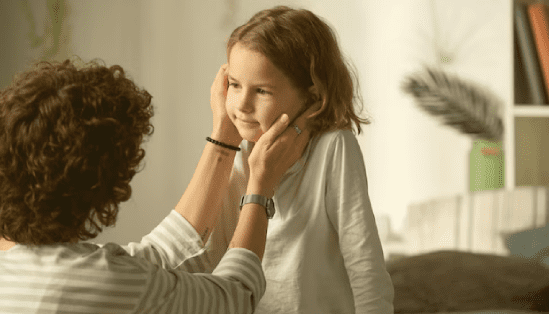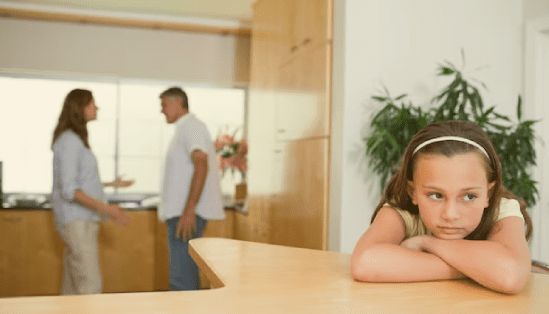At Soon Too Bee, we understand that one of the most important priorities during a divorce is ensuring that children continue to feel safe, supported, and emotionally secure. Divorce can be a tough experience for kids of any age, but the good news is that parents can take meaningful steps to help them through the transition.
Once you’ve shared the news of the divorce with your children, it’s completely normal for them to go through a period of emotional adjustment. As a parent, you’ll be adjusting too—redefining family routines, navigating emotional shifts, and establishing a new sense of normal.
During this time, it’s important not to be alarmed by some of the emotional responses you may notice. The process can feel overwhelming, even for adults who have some control over the situation. Kids, on the other hand, often feel a sense of powerlessness, which makes space and patience even more vital. Rather than pushing for immediate happiness or asking your child to “be okay,” focus on creating an environment where they feel safe expressing whatever emotions they may be experiencing.

Respect Their Emotions
Helping your child feel heard starts with encouraging open communication. Let them know it’s okay to feel confused, upset, or angry—and that they don’t have to protect you from those emotions. A good way to invite honest conversation is by saying something like, “We want to know how you’re feeling about everything, and it’s okay to tell us—even if it’s hard to say.”
Even if their words are difficult to hear, it’s crucial to allow space for honesty without taking it personally. Children often worry about upsetting their parents, especially during such a stressful time. But it’s not their responsibility to make you feel better. What they need is your unconditional emotional support and reassurance that their feelings—no matter how complex—are valid.
Also, resist the natural urge to “fix” their sadness or anger right away. Just listening—really listening—without trying to redirect or minimize their emotions shows your child that they matter and that their emotional world is important. You might say, “I understand why you feel that way,” and invite them to talk more, rather than rushing to change their mood.
This approach is called validation, and it’s one of the most powerful ways to show support. When you validate a child’s feelings, you’re telling them: “What you feel makes sense. I’m here, and I’m listening.” That message alone can go a long way in helping children navigate the emotional landscape of divorce with greater resilience.
At Soon Too Bee, we believe that when parents lead with empathy, honesty, and patience, children are better equipped to grow through challenging life changes—and come out stronger on the other side.

What to Expect and How to Respond During a Child’s Adjustment to Divorce
While it’s completely normal for children to go through a difficult adjustment period during a divorce, there are supportive ways you can help them navigate this transition in a healthy and constructive way. Below are some common emotions and behaviors children may experience—and how parents can respond with care and consistency.
Guilt
Children, especially younger ones, often blame themselves for their parents’ separation. They may think something they did or said caused the divorce. That’s why it’s important to clearly reassure your child that the divorce is not their fault. Even if they seem to understand, it’s crucial to remind them explicitly and repeatedly that adults make these decisions, not kids.
Anxiety
Divorce can bring a lot of changes—especially to routines, which can create anxiety in children. One of the most effective ways to ease this anxiety is to provide a clear picture of what they can expect. For example, explain what their new living arrangements will look like. For younger children, using a calendar to show where they’ll be each day can be helpful.
Establishing and maintaining a consistent routine is key. Children adjust better when they know what to expect, and they often struggle more if the co-parenting arrangements are uncertain. The sooner you can create a dependable schedule—such as which days they’ll be with each parent—the sooner your child can begin to feel more secure and settled.
Behavior Issues
You may notice your child acting out more than usual. This could be a reaction to stress or a way of testing boundaries during this time of change. The best way to handle this is by creating a structured environment with clear behavioral expectations.
Structure provides security. When both households maintain similar rules and routines, it reinforces stability and helps children feel safe and understood during the transition.
Regression
Some children may begin to regress—needing help with tasks they previously handled on their own, such as dressing themselves or sticking to their bedtime routines. This is a natural response to stress and change, and it simply means they’re seeking more parental support and reassurance.
You may need to provide extra comfort and help with self-care activities for a little while. Recognize this as a temporary need for more connection and support as they adjust to their new reality.
Withdrawal
On the other hand, some children may become more distant or withdrawn. While it’s important to respect their need for space, try to stay engaged by creating opportunities to spend quality time together. Plan a special activity, take a walk, or simply offer to hang out doing something they enjoy.
Also, be emotionally available—listen without judgment when your child chooses to open up. If they start losing interest in their favorite activities or pulling away from friendships, gently encourage them to re-engage.
Withdrawal can sometimes be a sign of deeper concerns such as depression or school refusal. If avoidance continues over time, it may be worth exploring professional support.
At Soon Too Bee, we understand how sensitive and emotional the divorce process can be—not just for parents, but for children as well. Our goal is to provide thoughtful resources and support that empower families through every phase of change.

Helping Children Focus During Divorce
During a divorce, some children may begin to have trouble concentrating on schoolwork. The emotional toll and shifting dynamics can make life feel chaotic and unpredictable. To help your child cope, aim to establish stable and reassuring routines at home—especially when it comes to homework and bedtime. Consistency can provide a sense of security in uncertain times.
It’s also important to communicate with your child’s teachers. Let them know that your family is going through a divorce so they can offer additional support at school if needed.
Good Parenting Tips During a Divorce
Model calm and stability: According to parenting specialists at Soon Too Bee, one of the most helpful things you can do for your child during a divorce is to model calmness. Even if things feel overwhelming behind the scenes, showing your child that everything will be okay helps provide emotional reassurance. Try to keep daily routines and extracurricular activities as normal as possible. When changes are necessary, establish new routines and stick to them.
Stay civil about your ex-partner: Avoid speaking negatively about your former partner in front of your child. Just because someone wasn’t the best spouse doesn’t mean they can’t still be a good parent. Children benefit most when they continue to have strong, loving relationships with both parents. Do your best to minimize tension and unnecessary conflict.
Work together on co-parenting: Co-parenting can be challenging and might require compromises. Aim to present a united front when it comes to parenting decisions, even if you and your ex don’t always agree behind closed doors. If cooperation proves difficult, focus on setting consistent expectations and routines in your own household—something you have direct control over.
Seek support: Connect with your child’s school counselor or teacher to find out if support services are available. Some schools offer group programs specifically for children experiencing family changes due to divorce. These programs can provide emotional support and coping tools.
Also, remember to take care of yourself. Lean on friends and family when you need a break or someone to talk to. Don’t hesitate to ask for help with errands or childcare—it’s okay to need a hand. If you’re feeling overwhelmed, consider reaching out to a therapist. The stronger and more supported you feel, the better you’ll be able to support your child during this transition.
At Soon Too Bee, we believe that empowered parenting during difficult times lays the foundation for emotional healing and resilience—for both you and your child.

FAQs
How can parents help kids cope with divorce?
The best way parents can support kids during a divorce is by validating their emotions. Rather than trying to distract them or immediately make them feel better, take time to listen and acknowledge their feelings—even the difficult ones. You might say, “I understand why you feel that way. Can you tell me more?” This shows empathy and builds trust.
What are some tips for helping kids through divorce?
One of the most effective ways to help kids adjust is to maintain a structured daily routine. Routine brings stability, reduces anxiety, and can minimize behavioral issues. It also helps kids stay focused at school. Keep teachers informed of the situation, and if your child is withdrawing from school or friends, make time to connect with them more personally.
What is the best way to help kids through divorce?
There are some key guidelines that can ease the transition for kids. Stay as calm as you can, as your composure helps them feel safe. Reassure them that the divorce is not their fault. And as hard as it may be, avoid speaking negatively about your ex in front of the kids. These actions can go a long way in supporting their emotional health.
At Soon Too Bee, we understand how sensitive this time can be for families. We’re here to offer support, resources, and guidance every step of the way.



